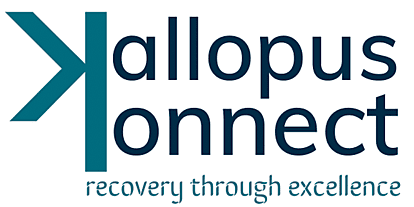Speech Therapy and How It Supports Child Development:
Every child has their own pace of development ,some children attain the milestones early than the others and in other hand some children take longer period to attain it. But the point is when the delay of the milestones causes difficulty for the child in the day today life there comes the issues. Similarly ,when the speech milestones are delayed and the child faces difficulty in expressing and understanding others then you might need to consult a speech language pathologist for the better outcomes and clarification.
I am Gunashreya Raj speech language pathologist at Reviviscence Rehab and in this blog I will tell you about what is speech therapy and benefits of it.
Speech therapy is a specialized intervention provided by a speech-language pathologist (SLP). It focuses on improving a child's ability to communicate effectively. Speech therapy consists of techniques and activities aimed at improving overall communication by addressing.
·Speech (articulation): How sounds and words are spoken
·Language: Understanding and using words to communicate
·Fluency: The flow of speech (e.g., stuttering)
·Voice: Vocal quality, pitch, and volume
·Social communication: Using language appropriately in different situations
·Feeding and swallowing: In some cases, therapy also addresses oral motor skills
Why Would My Child Need Speech Therapy?
Children may require speech therapy for a wide range of reasons. These can include stuttering, difficulty pronouncing words, and voice problems. Some children may struggle to understand language, have a limited vocabulary, or use words inappropriately. Others may have difficulty forming sentences, organizing their thoughts verbally, or may be affected by hyperactivity and attention issues. In some cases, children may also experience feeding and swallowing difficulties, such as trouble chewing, coughing during meals, or refusing food altogether. Additionally, speech therapy may be necessary following an illness that has affected a child’s ability to communicate. If you notice that your child is not meeting age-appropriate developmental milestones or is falling behind peers in communication skills, intensive speech therapy could be highly beneficial.
What are the Benefits of Speech Therapy for Children?
Speech therapy has many benefits for children, including:
1. Improves Communication Skills:
Speech and language therapy goes far beyond simply helping children speak. It encompasses all aspects of communication, including both spoken language and alternative methods of expression. For children who are nonverbal or have limited speech, therapists provide tools and strategies to help them communicate effectively. This may involve unaided methods like gestures , as well as aided approaches such as communication books, picture boards, speech devices, voice output systems, or communication apps. Speech Therapy plays a vital role in supporting language development, understanding, and overall communication—giving every child a voice, regardless of how they express it.
2. Improves Social Skills:
Speech therapy doesn’t just focus on words—it also teaches children how to use language in social settings. This includes learning how to start a conversation, take turns while talking, use appropriate body language, and understand social cues.
3. Helps with Reading:
A speech delay can impact more than just verbal communication—it can also affect a child’s ability to listen, read, and write. Strong literacy skills are closely tied to effective communication. When a child learns to read and spell, they gain powerful tools for expressing themselves clearly and confidently. Building these foundational skills not only supports language development but also opens up new pathways for communication and learning.
4. Enhances Alternative Communication Methods:
Communication isn’t just about speaking words—we all use many ways to communicate, like gestures, facial expressions, eye contact, and body language. This is called a total communication approach. For children who have difficulty speaking, it’s important to teach other ways to express themselves. This can include using signs for common needs like “bathroom,” “eat,” or “drink,” or tapping someone’s shoulder to get their attention. If a child uses certain sounds often, we can give those sounds meaning. For example, if a child says “ma” consistently, we can teach them to use it to mean “amma.” Or if they say “ba,” we might use that to mean “come ” if it’s something important to them. The goal is to help each child find the best way to share their thoughts, needs, and feelings—even if it’s not through spoken words.
5. Boosts Confidence and Self-Esteem:
Children who struggle to communicate can feel frustrated or embarrassed. Therapy helps them gain the skills they need to interact successfully, which can dramatically improve their self-confidence and willingness to participate in social settings.
6. Supports Children with Special Needs:
Speech therapy plays a crucial role in the development of children with conditions such as:
- Autism Spectrum Disorder (ASD)
- Down syndrome
- Apraxia of speech
- Hearing impairments
- Developmental delays
- Cerebral palsy
7. Involves and Empowers Parents:
Parents are a vital part of the therapy process. SLPs often provide strategies, exercises, and support for parents to use at home. This ensures that progress made in sessions continues in everyday life.
At Reviviscence Rehab, we provide speech therapy and set goals which is appropriate to the child needs. speech or language difficulties, don’t hesitate to reach out to Reviviscence Rehab for support and guidance.
West Tambaram, Perungalathur:
14, Sriram Nagar, Old Perungalathur,
Call: 09940400943
Padur, OMR,
96, Veeranam Road,
Birndavan Phase-I,
Call: 09940400943





